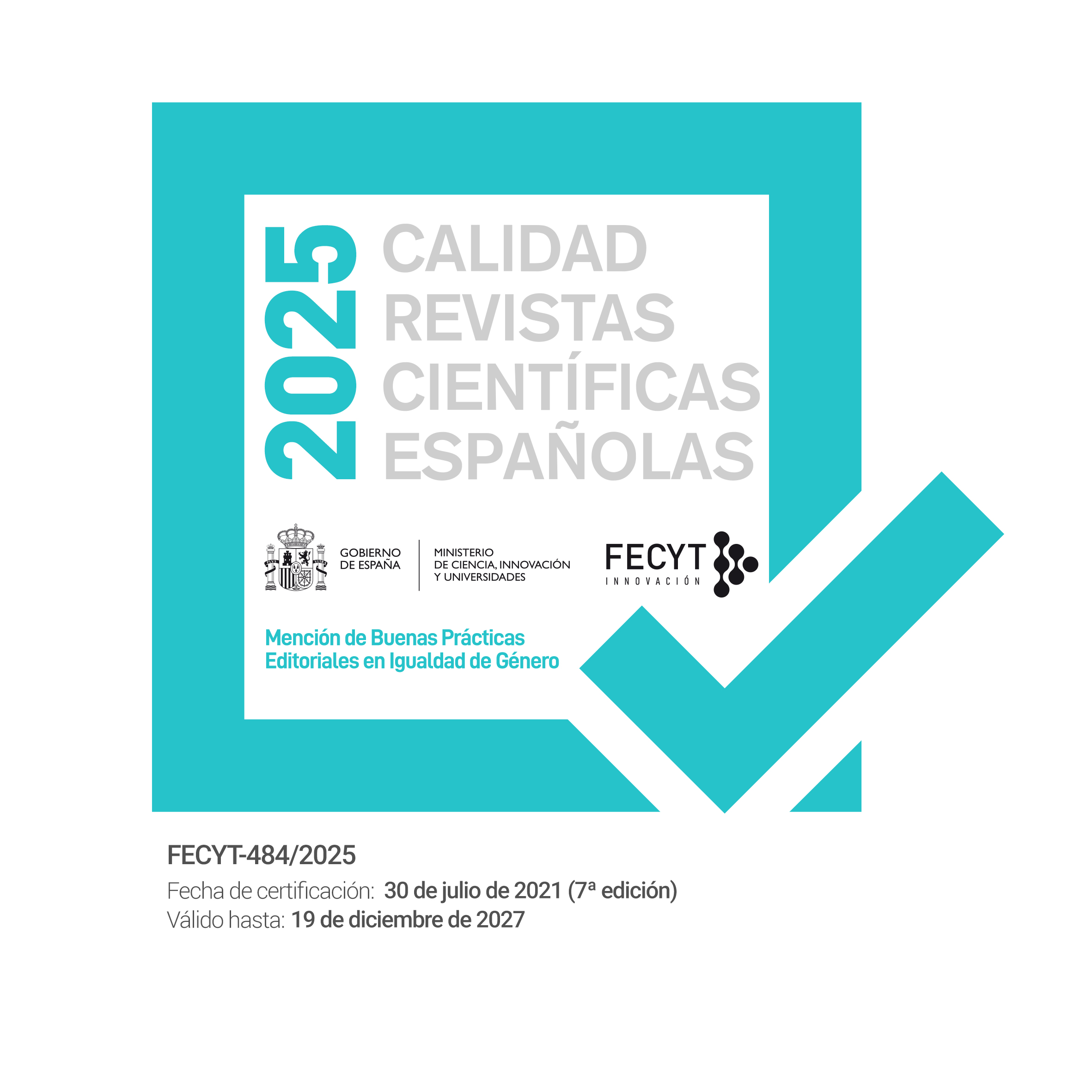Scientific and construction toys in education and industry: values and interactions in Spain (1920-1936)
DOI:
https://doi.org/10.5944/hme.14.2021.27412Keywords:
Active education, Instructive toy makers, Teaching objects, Manual work, Meccano, 1920-1936, SpainAbstract
This study contemplates the extension and mutual influences of certain kinds of renovating practices promoted in two realms of education, formal and non-formal, in the second and third decades of the 20th century in Spain. As part of a broader critique of the traditional school, these new perspectives coincided in their rethinking of the students’ and amateurs’) relationship with the materials used in learning process. For them, the object, rather than constituting a distant, symbolic and untouchable reality –subject to a memory-based, verbalist conception of education–, should be a close, touchable tool whose handling contributes to awakening the inventive abilities of students, especially in scientific disciplines. We will analyze the connections and differences between the principles of movements included in active teaching and the strategies of companies dedicated to the manufacture of construction toys, particularly those carried out by a preeminent brand working in this sector at the time, Meccano.
Downloads
References
Adúriz Bravo, Agustín. «La propuesta didáctica del movimiento de la Escuela Nueva para la física: Argentina, 1921-1928». Revista Latinoamericana de Estudios Educativos (México) Vol. XXIX, no. 4 (1999): 151-160. Disponible en: https://www.redalyc.org/articulo.oa?id=270/27029405
Bordes, Juan. Historia de los juguetes de construcción. Madrid: Cátedra, 2012.
Borja i Solé, María de. El juego como actividad educativa. Instruir deleitando. Barcelona: Universitat de Barcelona, 1984.
Bowler, Peter. «Meccano Magazine: boys’ toys and the popularization of science in early twentieth-century Britain». BJHS Themes 3 (2018): 129-146.
Brown, Keneeth D. The British Toy Business: A History since 1700. Londres: The Hambledon Press, 1996.
Cambi, Franco. Las pedagogías del siglo XX. Madrid: Editorial Popular, 2005.
Corredor, José. El juguete en España. Madrid: Espasa, 1999. Cossío, Manuel B. El maestro, la escuela y el material de enseñanza y otros escritos, edición de Eugenio Otero Urtaza. Madrid: Biblioteca Nueva, 2007.
Dewey, John. Democracia y educación. Una introducción a la filosofía de la educación. Madrid: Ediciones Morata, 1998.
Dewey, John. Experiencia y educación, edición de Javier Sáenz Obregón. Madrid: Biblioteca Nueva, 2010.
Estalella, José. «La simplificación del material escolar de Física y Química», Enseñanza media 80-83 (1960): 635-660.
Ferrière, Adolphe. «École». En Sébastien Faure Encyclopédie anarchiste. París: La Librairie internationale, 1925-1934, tome 2, 622-623.
Giner de los Ríos, Francisco. Obras selectas, ed. de Isabel Pérez-Villanueva Tovar. Madrid: Austral, 2004.
Gladwell, Malcolm. Inteligencia intuitiva. Madrid: Taurus, 2005.
Gordon, Peter y Denis Lawton. Dictionary of British Education. Londres: Woburn Press, 2005.
Guijarro, Víctor y Leonor González. «La presencia de la tecnología en la utopia pedagógica: el Instituto de San Isidro y los Institutos-Escuela promovidos por la JAE». En El Instituto de San Isidro. Saber y patrimonio. Apuntes para una historia, editado por Leonor González y Vicente J. Fernández, 173-197.
Madrid: CSIC, 2013.
Guijarro, Víctor. Artefactos y acción educativa. La cultura del objeto científico en la enseñanza secundaria en España (1845-1930). Madrid: Dykinson, 2018.
Jacobson, Lisa. «Manly Boys and Enterprising Dreamers: Business and the construction of the Boy Consumer, 1910-1930». Enterprise and Society 2, no. 2 (2001): 225-258.
Keene, Melanie. «Every boy and girl a scientist. Instruments for children in Interwar Britain». ISIS 98, no. 2 (2007): 266-289.
López Martínez, José Damián et al. «Patrimonio, cultura material e innovación docente: Propuestas y experiencias». Educació i Història: Revista d’Història de l’Educació 26 (2015): 89-120.
Maestro, Pilar. «Lorenzo Luzuriaga y la educación republicana». Pasajes: Revista de pensamiento contemporáneo 21-22 (2007): 19-42.
Marín Eced, Teresa. «Influencias europeas en la formación profesional de docents españoles durante la II República Española». Revista de Educación 285 (1988): 93-110.
McReavy, Anthony. The Toy Maker. The Life and Times of Inventor Frank Hornby. Londres: Ebury Press, 2007.
Otero Urtaza, Eugenio, Manuel Bartolomé Cossío: pensamiento pedagógico y acción educativa. Madrid: Centro de Publicaciones del Ministerio de Educación y Ciencia, CIDE, 1994.
Payá Rico, Andrés. «Aprender deleitando. El juego infantil en la pedagogía Española del siglo XX». Bordón. Revista de Pedagogía 65, no. 1 (2013): 37-46.
Payá Rico, Andrés. «El juego popular y tradicional en la historia de la educación española contemporánea». Historia de la Educación 38 (2019): 39-57.
Payá Rico, Andrés. «El juego y el juguete en la historia de la escuela». En Escoles i mestres: dos siglos de historia y memoria en Valencia, coordinado por Óscar Barberá y Alejandro Mayordomo Pérez, 137-152. Valencia: Universidad de Valencia, 2017.
Redondo Castro, Cristina. «La segunda enseñanza pública en Extremadura, 1900-1936». PhD. diss., Universidad de Málaga, 2018.
Trilla Bernet, Jaume. La educación fuera de la escuela. Ámbitos no formales y educación social. Barcelona: Ariel, 1993.
Vallone, Lynne (2017). Big and Small: A Cultural History of Extraordinary Bodies. New Haven y Londres: Yale University Press, 2017.
Van Beek, Viola. «Experimental spaces outside the laboratory - Experiment kits and instruction manuals around 1900». The Virtual Laboratory, 2009, Disponible en http://vlp.mpiwg-berlin.mpg.de/references?id=art73).
Downloads
Published
How to Cite
Issue
Section
License
Authors who publish in Historia y Memoria de la Educación agree to the following terms:
- Authors retain copyright and grant the journal right of first publication with the work simultaneously licensed under a Creative Commons Attribution-NonCommercial 4.0 International that allows others to share the work with an acknowledgement of the work's authorship and initial publication in this journal.
- Authors are able to enter into separate, additional contractual arrangements for the non-exclusive distribution of the journal's published version of the work (e.g., post it to an institutional repository or publish it in a book), with an acknowledgement of its initial publication in this journal.
- Authors are permitted and encouraged to post their work online (e.g., in institutional repositories or on their website) prior to and during the submission process, as it can lead to productive exchanges, as well as earlier and greater citation of published work (See The Effect of Open Access).












